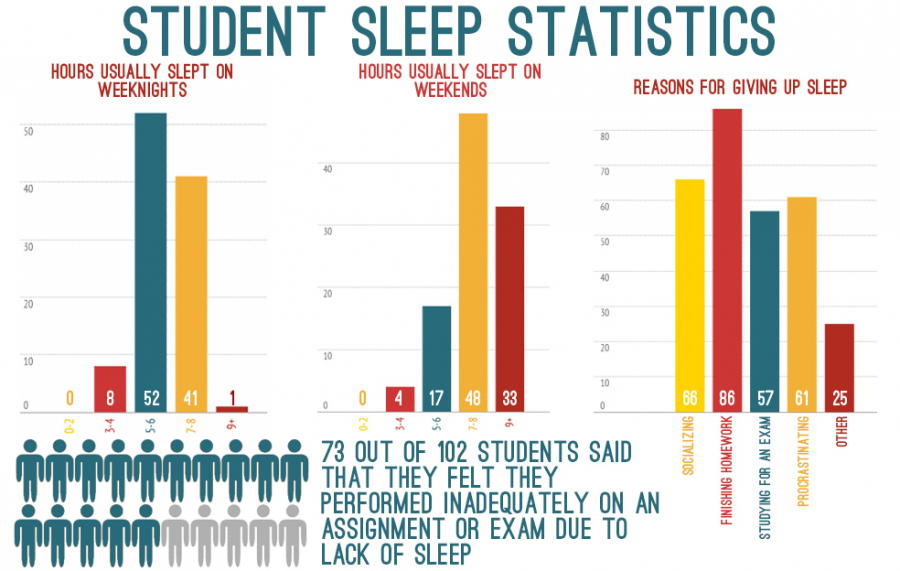Teachers need to adhere to schoolwork limits
Photo courtesy of The Tartan under Creative Commons License
This 2013 graph showcases how students’ sleep is impacted and how it affects academic performance. The highest reason for lack of sleep is the amount of homework they receive.
October 23, 2020
Students are fatigued, distressed, and overwhelmed. Day in and day out, our lives have become a timeline of due dates, projects, and test scores. Forever on a quest to conquer to-do lists of assignments upon assignments. How come every day feels extremely exhausting and like a chore? To simply put it, teachers are assigning their students tremendous amounts of work, and it needs to stop.
Putting the brunt of the blame on the students may be tempting, but it’s not just a case of poor time management and procrastination. The problem lies in the sheer amount of busy work and nonsense assignments given by teachers. More often than not, the majority of all the time-consuming homework isn’t designed to help gain mastery but are just filler grades to put into the grade book. This meaningless form of grading assignments for numerical value does nothing in the long run to actually teach students the concepts needed to succeed in their classes. Yes, practice is proven to lead to improved performance but not when it lacks value to mean something to the student. This influences students to turn to cheating and borrowing answers from classmates instead of immersing themselves in the material.
For some students, there are many cases where certain classes have too much information to cover within the timeframe given at school (these mostly being AP and other higher-level classes and electives), so students end up having to learn most of the information outside of class on their own time. Though this gives teachers the relief of not having to cram in so much at once in an 80-minute block, it puts an immense amount of pressure on students to have to learn everything ahead of time. This disregards the time students need to align with their other priorities such as clubs, home responsibilities, work for other classes, and hobbies.
Having to juggle so much at once puts students under boundless amounts of stress. Students oftentimes have to prioritize their schoolwork over their own wellbeing, and their mental health suffers greatly as a result. Most experts generally agree that highschool aged kids require at least eight to nine hours of sleep daily, but this target isn’t met for the majority of teenagers. The students’ health and wellness should be of top antecedence, but with the way a great number of teachers are behaving, it’s clear that they are mostly just afterthoughts.
The county has pushed the guidelines for 60 minutes of asynchronous work for regular/honors classes and 75 minutes for AP courses for a reason, and it is at the fault of the teachers for not adhering to these guidelines. They are not mere suggestions or a range of time for teachers to pick and choose from, they are compulsory protocols for them to follow. The constitution and well-being of students is at stake, and it’s time that teachers stop believing that their pupils’ lives revolve only around them and their class.





